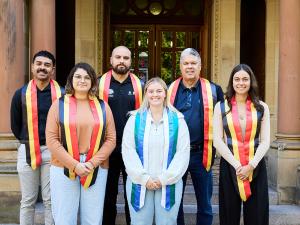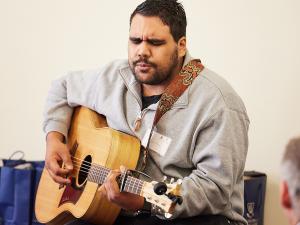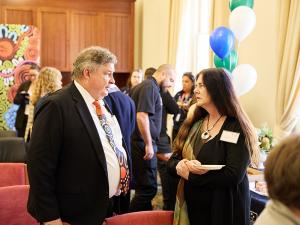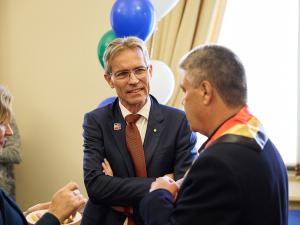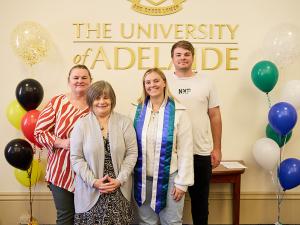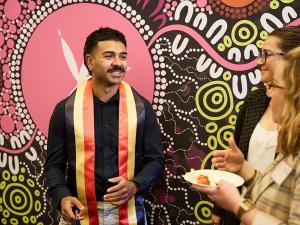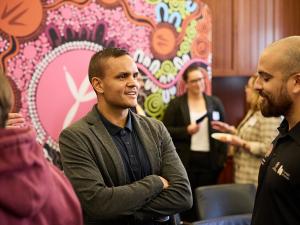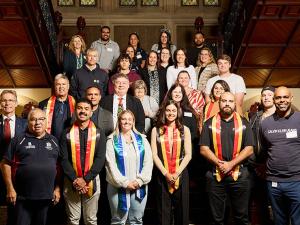Celebrating our Aboriginal and Torres Strait Islander graduates

Thirty-six outstanding Aboriginal and Torres Strait Islander students will graduate this semester from The University of Adelaide, and their accomplishments have been celebrated at a special event hosted by Wirltu Yarlu.
This is a significant moment for the University’s First Nations community, as these graduates have overcome challenges and obstacles to achieve their academic goals.
It was a proud day for Professor Steve Larkin, Pro Vice-Chancellor (Indigenous Engagement).
“Today, we celebrated not just the academic achievements of our graduates but also their collective resilience, determination, and courage. They have overcome numerous obstacles and challenges to get here today, a testament to the strength and character of the Aboriginal and Torres Strait Islander communities”.
For the graduates, this event marked the culmination of years of hard work, dedication, and perseverance. Steve Pepper, a proud Kaurna man, is graduating with a Bachelor of Commerce. His journey has been a testament to his determination. “Wirltu Yarlu made a big difference for me during my studies. It’s a great space to go to focus and do some work. It was a massive help for me. It’s not as hard as it seems. With a little bit of time, effort, and help from tutors and Wirltu Yarlu, it can be done, even when working full-time”.
Steve is currently working at The Department of Human Services with the Aboriginal Languages Interpreting Service, helping keep Indigenous languages alive and helping Aboriginal and Torres Strait Islander people who can’t speak English to be able to understand their medical treatment and support them through their journeys.
The graduates were presented with a cultural sash to wear proudly over their graduation gown during the University of Adelaide official graduation ceremony, identifying their cultural heritage as Aboriginal, Torres Strait Islander, or both. This was a powerful moment, as it recognised the importance of Aboriginal and Torres Strait Islander culture and its role in shaping the graduates' identities.
The President and Vice-Chancellor of The University of Adelaide, Professor Peter Høj AC, attended the celebration event, highlighting the importance of closing the gap in education. “Our opportunity as a university is to assist individuals and society to become the best they can be, and having you as graduates of this University means we are doing something right, and we are very pleased that you chose to educate yourself with us,” said Professor Høj.
The graduates' achievements have a far-reaching impact, not just on their own lives but on the broader First Nations community. As role models and leaders, they inspire the next generation of students to pursue higher education and positively impact their communities.
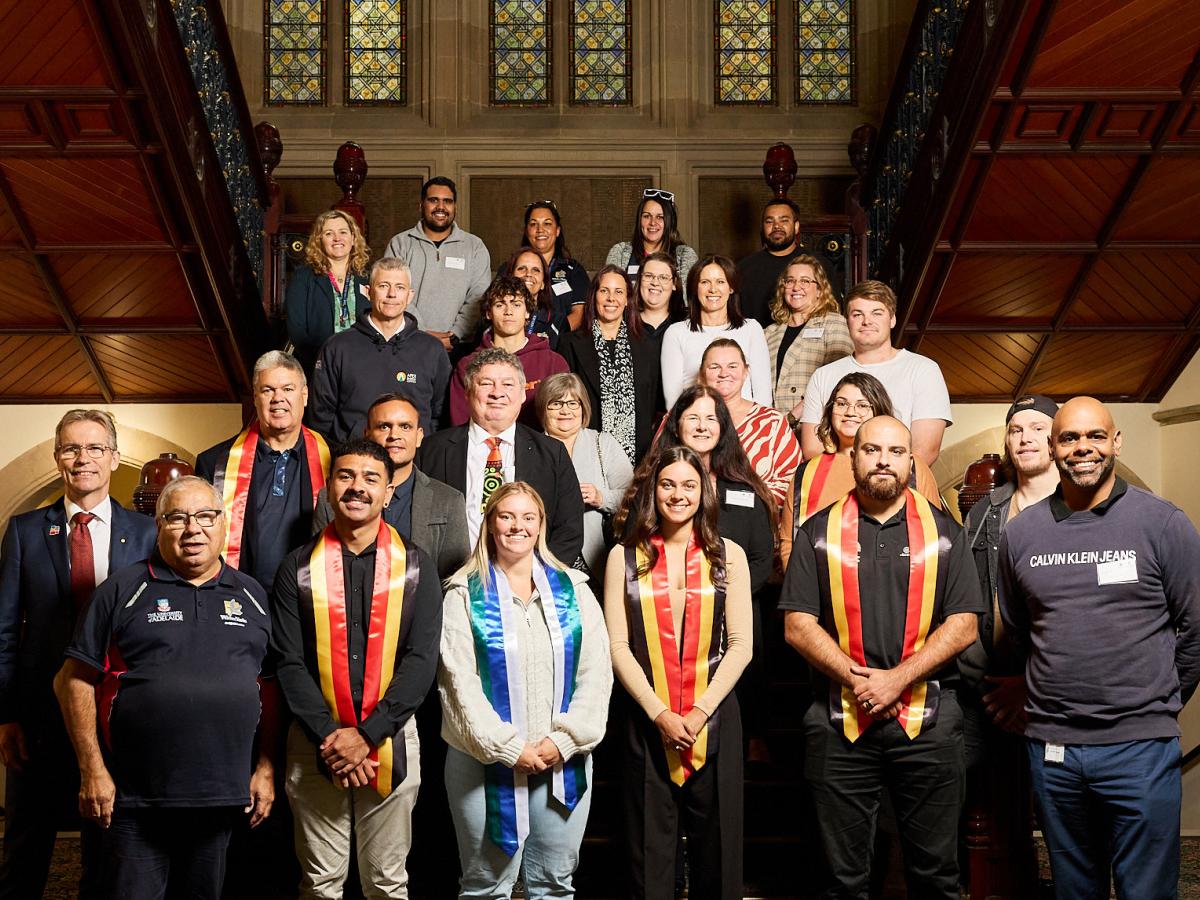
For Mackenzie Weltman, a proud Torres Strait Islander woman graduating with a Bachelor of Teaching (Secondary), it feels like a full-circle moment. She has lined up her first full-time teaching role at Kadina Memorial School, her old High school. “I’m now working alongside teachers who taught me and teaching the siblings of my old classmates. The conversations I have with our Aboriginal and Torres Strait Islander students, especially those not sure what to do after high school, are fulfilling as I can show them that it is possible to pursue higher education. And now they want to do something like I have done. They want to go to university and make something of themselves, which is so important for our community”.
Mackenzie has been supported by Wirltu Yarlu since year 12 in High School when she joined the Karnkanthi Program. “I was supported and looked after since year 12. They helped me with guidance, well-being, and information leading to my degree. Then, during University, Wirltu Yarlu helped me with tutoring, which was a great support; they always had my back. The whole experience has shaped me into someone who's beyond what I would have ever expected.”
We congratulate all the Aboriginal and Torres Strait Islander graduates on their incredible achievements and wish them the best in their future endeavours. Their success is a testament to the power of First Nations culture and Indigenous communities' resilience.


